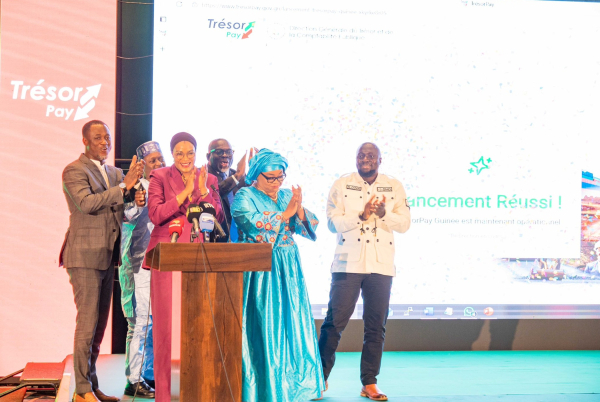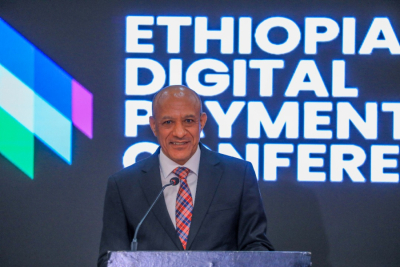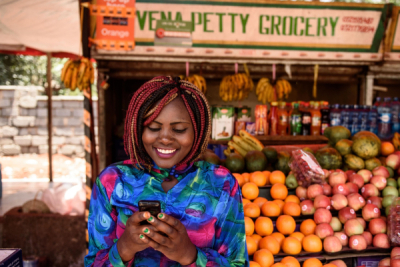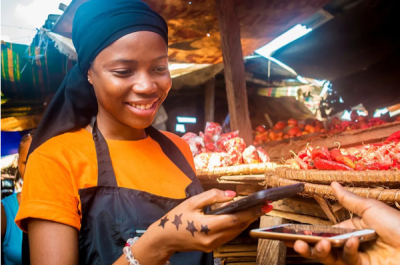
Finance (113)
- Algeria introduces electronic stamp duty payments for commercial register filings
- “Tabaakoum” platform enables card-based payments and digital receipt acceptance
- Move supports digitalisation, transparency, and reduced informal economic activity
Algeria’s finance ministry and trade ministry have signed a protocol to introduce electronic stamp duty payments for commercial register filings, the two ministries said in a joint statement on Wednesday.
The agreement enables the use of the “Tabaakoum” digital payment platform for stamp duties linked to commercial registration. Payments can be made via interbank cards or the state-backed Edahabia card.
The digital receipt generated by the platform will now be accepted as official documentation for business registration or modification filings. The move aims to offer more flexibility to businesses and increase the transparency of financial transactions.
The initiative comes as electronic payments see rapid growth in the country. Data from the Monetics Group (GIE Monétique) shows more than 5.2 million payments via electronic terminals between January and July 2025 generated nearly 47.2 billion dinars ($363.8 million), a total that already exceeds all of 2024.
Beyond simplifying procedures for merchants and entrepreneurs, the shift to electronic payments for the commercial register is part of a broader national strategy to modernize public services and reduce the informal economy. The government has recently launched multiple initiatives to expand digital payments, encourage e-commerce and improve online service access in a country where internet penetration now reaches about 77% of the population.
By facilitating commercial registration and reducing the costs and delays linked to in-person procedures, the state aims to improve the competitiveness of the entrepreneurial sector and enhance the traceability and transparency of economic activity.
Samira Njoya
-
Trésor Pay digitizes the payment of fees and charges owed to the state
-
The platform aims to improve revenue collection and reduce fraud risks
-
Payments can be made via mobile money alongside existing channels
Guinea has launched Trésor Pay, a digital platform designed to dematerialize the payment of administrative fees and charges owed to the state. The platform was officially rolled out on December 22 in Conakry and is intended to improve public revenue mobilization while reducing administrative friction for users.
According to Economy and Finance Minister Mourana Soumah, Trésor Pay follows a presidential directive aimed at improving citizens’ access to public services and strengthening domestic revenue collection. The platform is expected to reduce queues, limit costly travel, and curb informal practices, while ensuring better traceability of payments. For the state, the dual objective is to speed up the availability of funds and reduce fraud risks across the collection chain.
Operationally, Trésor Pay allows users to pay administrative fees and charges collected by the public treasury directly via their mobile phones. The platform relies on electronic money services and operates alongside the traditional payment circuit. It also includes user support mechanisms, notably a dedicated call center, to assist citizens with the payment process and ensure service continuity.
The rollout comes at a time when financial inclusion in Guinea remains limited, with an estimated rate of around 30%, while the use of mobile money continues to expand rapidly. In this context, the digitalization of public payments is seen as a tool to widen access to administrative services, particularly for populations living far from urban centers and outside the traditional banking system. The reform forms part of broader efforts by the authorities to modernize public finances and strengthen economic governance.
Over time, Trésor Pay could help improve the collection of non-tax revenues, shorten payment processing times, and reduce fraud risks. The platform also opens the door to additional uses, including mass payments and other dematerialized public financial instruments. For Guinea, the challenge now is to turn Trésor Pay into a fully operational system capable of sustainably supporting budget efficiency and transparency in public action.
Samira Njoya
- Ethiopia launches 2026-2030 digital payment strategy and instant system Ethiopay
- Strategy targets inclusion, security, and cross-border retail payment access
- Digital reforms support AfCFTA integration and process $119 billion annually
Ethiopia has launched a national digital payment strategy and a new instant payment system as part of efforts to modernize its financial system and expand access to digital services, particularly among underserved populations.
The National Digital Payment Strategy (NDPS) for 2026-2030 is a five-year roadmap aimed at strengthening interoperability, trust and innovation in payments. It includes plans to facilitate low-value retail cross-border transfers through cards, mobile wallets and digital banking services. The strategy also prioritizes system security, interoperability between providers and consumer protection, while seeking to narrow usage gaps between urban and rural areas and between men and women.
The instant payment system, known as Ethiopay, was developed by national operator EthSwitch. It provides a secure and interoperable infrastructure for instant peer-to-peer transfers, QR code payments, bulk payments and selected cross-border transactions, making it the backbone of Ethiopia’s domestic digital payments system.
The initiatives build on Ethiopia’s broader Digital Ethiopia 2025 and Digital Ethiopia 2030 programmes, which aim to transform economic, administrative and social systems through digital technology. These programmes focus on modernizing public services, improving connectivity and expanding the role of private-sector operators.
Officials say the reforms are already delivering results, with more than 18.5 trillion birr ($119 billion) processed annually through digital platforms. The entry of Safaricom Ethiopia with M-Pesa, the rollout of Ethio Telecom’s Telebirr and the gradual integration of the national digital identification system, Fayda, have contributed to the development of the digital payments ecosystem.
The rollout of the NDPS and Ethiopay is expected to simplify everyday payments, support financial inclusion and streamline commercial transactions. It is also expected to play a strategic role in regional integration by allowing Ethiopia to more quickly benefit from the African Continental Free Trade Area (AfCFTA).
The AfCFTA covers 1.4 billion people and has a combined gross domestic product of $3.4 trillion, according to its Secretary General, Wamkele Mene.
Samira Njoya
Strategically located between Europe and Africa, Morocco has leveraged its geographical position and its well-educated youth to develop its services economy. The digital sector is now a major beneficiary of this approach, offering considerable opportunities for international businesses.
Exports of digital and outsourced services have emerged as a quiet engine of Morocco’s economy, reaching 26.2 billion dirhams ($2.8 billion) in 2024. According to Morocco’s foreign exchange office, Office des Changes, this is a slight 0.2% increase from 2023. The sector’s growth momentum was confirmed in the first half of 2025, with exports hitting 13.4 billion dirhams, a 3.5% rise compared with 12.9 billion dirhams during the same period in 2024.
The sector’s growth momentum was confirmed in the first half of 2025, with exports hitting 13.4 billion dirhams
Digital service exports involve specialized Moroccan teams providing services to foreign companies and clients. These local teams execute advanced digital tasks, or international companies outsource support and customer service activities to Moroccan providers to reduce operating costs. Digital services are the most dynamic and in-demand component, generating the majority of the sector's export revenue.
The sector is predominantly driven by Information Technology Outsourcing (ITO) and Customer Relationship Management (CRM). In 2024, IT and technology services, which encompass development, maintenance, and cybersecurity, accounted for 40.3% of the total. CRM and call center activities, which handle assistance and multilingual support, followed closely at 37.4%. Together, these two segments represent 78% of total digital service exports.
Other key segments contribute to the growth: Engineering Services Outsourcing (ESO), which includes design and systems integration, accounted for 13.2% of revenue. Business Process Outsourcing (BPO), covering back-office functions like accounting and data entry, made up 8.9%. Meanwhile, Knowledge Process Outsourcing (KPO), which focuses on high-value tasks such as financial analysis and business intelligence, was the smallest component at 0.2%.
Despite global tensions, including inflation and exchange rate volatility, Engineering Services Outsourcing (ESO) revenues grew, a sign of Morocco’s gradual move up the value chain. ESO receipts rose from 3.2 billion dirhams in 2023 to 3.4 billion in 2024, already reaching 2.5 billion dirhams in the first half of 2025.
Despite global tensions, including inflation and exchange rate volatility, Engineering Services Outsourcing (ESO) revenues grew, a sign of Morocco’s gradual move up the value chain
Business Process Outsourcing (BPO) also grew, rising from 1.9 billion dirhams to 2.3 billion dirhams between 2023 and 2024, with 1.3 billion dirhams generated in the first half of 2025. Conversely, Knowledge Process Outsourcing (KPO) experienced a sharp decline, falling from 78 million to 48 million dirhams, and totaled 21 million dirhams in the first half of 2025.
The sector’s stability in 2024 and positive signals in 2025 support Morocco's foreign exchange earnings and its export diversification beyond goods. The acceleration of engineering services demonstrates that Morocco is asserting itself as an engineering hub near Europe, offering reduced lead times and compliance with international standards, rather than solely a call center platform.
The growth in outsourced digital services translates into stable revenue and qualified jobs for the Moroccan economy. Call centers and support activities recruit young people with strong language and interpersonal skills. IT and technology services, however, stimulate demand for more technical and better-paid profiles. The Ministry of Digital Transition and Administrative Reform reported the sector already supported 141,000 jobs in 2023, up from 130,000 in 2022 and 100,000 in 2020.
The acceleration of engineering services demonstrates that Morocco is asserting itself as an engineering hub near Europe, offering reduced lead times and compliance with international standards, rather than solely a call center platform
To better manage this growth trajectory, the Office des Changes and the Ministry of Digital Transition have launched a project to modernize monitoring indicators for digital service exports. The goal is to obtain more granular data to target training, regional attractiveness, and promising niche markets. This work is part of the Digital Morocco 2030 strategy.
To maintain this growth, Morocco must tackle three key challenges: adapting to the era of automation by ensuring continuous upskilling to maintain competitiveness against artificial intelligence; guaranteeing high quality service, robust cybersecurity, and impeccable business continuity to compete internationally; and finally, developing talent and infrastructure across the country. Attracting higher value-added projects requires a broader pool of skilled talent and a regional network of infrastructure extending beyond major cities. Coordinated execution of these reforms across government actors will be key to success.
Muriel Edjo
• Mobile money and online banking are driving digital finance growth across Africa.
• Interoperable systems in Ghana, Nigeria, and Kenya show strong adoption and economic impact.
• Challenges remain with digital access, cybersecurity, and regulatory harmonization.
Africa’s financial sector is undergoing rapid change with the rise of mobile money and digital banking. At the center of this shift, interoperable instant payments -systems that enable transactions across banks and mobile operators- are emerging as a key driver of financial inclusion and regional trade.
According to the World Bank, about 350 million adults in sub-Saharan Africa remain unbanked. Mobile money has helped bridge part of this gap, with 44% of adults holding an account in 2024, compared with the global average of 29%, the latest Global Findex 2025 report shows.
Several countries have taken major steps to build interoperable payment systems. In Ghana, the GhIPSS platform connects banks and mobile operators, handling an average of 17.9 million instant transactions per month since December 2022, involving more than 55 financial institutions.
In Nigeria, the NIBSS platform processed interbank instant payments worth 600,360 billion nairas (around $390 billion) in 2023. In Kenya, M-Pesa continues to dominate, accounting for nearly 55% of GDP, according to the Fintech Association of Kenya.
More recently, Sierra Leone, the Comoros, Somalia, and Algeria have announced national interoperable payment systems, adding to the continent’s growing financial infrastructure.
These efforts also support the African Continental Free Trade Area (AfCFTA) by making cross-border transactions cheaper and faster. The Pan-African Payment and Settlement System (PAPSS) reflects this trend, enabling central banks and financial institutions to make real-time payments in local currencies, lowering costs and delays while deepening integration. According to the GSMA, mobile money transactions in sub-Saharan Africa reached $190 billion in 2023, or 4.5% of regional GDP, up from $150 billion in 2022.
Challenges ahead
Interoperable instant payment systems are boosting financial inclusion, lowering transfer costs, encouraging fintech and e-commerce innovation, and strengthening regional integration. They also help states track financial flows and secure transactions, reinforcing digital sovereignty.
But hurdles remain. The digital divide is still wide, especially in rural areas with weak Internet coverage. Cybersecurity risks such as fraud, hacking, and data theft continue to undermine trust. And the lack of harmonized regulations slows the rollout of cross-border solutions.
To unlock the full potential, African countries need to expand digital infrastructure, step up cybersecurity, train populations in digital finance, and move toward unified regulation. With smartphone penetration in sub-Saharan Africa projected to reach 87% by 2030, these initiatives could bring millions into the financial system, support intra-African trade, and speed the transition toward an integrated digital economy.
While millions of Africans have embraced mobile money for savings, its adoption for credit remains modest. This is primarily due to the persistence of informal lending practices, even as new innovations begin to emerge.
Mobile money has become a transformative force for financial inclusion in Africa, yet its full potential remains untapped. While the service has excelled at providing a platform for savings, it has made little headway in providing widespread access to credit. The Global Findex Database 2025, published by the World Bank, shows the share of African adults with a mobile money account soared from 27% to 40% in just three years, reaching the highest rate globally. The report found that 23% of African adults saved using their mobile accounts in 2024, nearly double the rate of 13% in 2021.
The report also shows that 35% of African adults overall reported saving digitally or through traditional institutions. In countries with large mobile money economies like Ghana, Kenya, Senegal, and Uganda, more than 50% of adults use mobile money for savings, signaling a massive adoption of the service.
Mobile money is more accessible than traditional banking networks, making it easier to save small amounts and providing flexible deposits and withdrawals through local agents. This has led to more inclusive adoption, especially in rural and informal settings.
Savings Succeed, Credit Stalls
Despite the success of savings, access to credit through mobile money remains very limited. In 2024, only 7% of African adults borrowed through their mobile accounts, a figure that has remained stable since 2021. By contrast, nearly 59% of adults across the continent used some form of credit, though primarily through informal means like family or savings clubs.
In major mobile money markets like Kenya, Ghana, and Uganda, 22% to 32% of adults have borrowed through a mobile operator. However, these loans are typically small, short-term, and often carry high interest rates, which limits their overall economic impact.
Several factors explain this disconnect. According to the World Bank, regulatory authorities remain cautious, fearing over-indebtedness or fraud. The organization also points to business models that favor less-risky deposits and payments over credit.
The report also reveals that customers themselves are hesitant to borrow through platforms not well known for lending due to distrust, limited financial literacy, or overly strict eligibility simulators.
Innovations and Lingering Limits
While some specialized fintech and mobile platforms are gradually expanding their offerings through alternative credit scoring and nano-loans for micro-entrepreneurs, a mass-market for inclusive digital credit has yet to emerge. The report notes that countries with close cooperation among mobile operators, banks, and regulators, such as Kenya, are making progress, but elsewhere, advancement is slow.
The challenge now is to pair access to digital savings with policies for financial literacy, consumer protection, and regulatory innovation. The goal is to advance credit access without making already vulnerable populations more fragile.
For the World Bank, mobile money's full potential in Africa will only be unlocked when it contributes as much to productive investment as it does to savings security. This requires building customer trust and analytical skills regarding digital credit offers, improving interoperability between services and institutions, and adapting credit to local economic realities while minimizing associated risks.
Melchior Koba
• Burundi deepens collaboration with Liberia, Sierra Leone, and Benin on tax digitalization
• OBR targets simplified tax processes, better data management, and online platforms
• National rollout of electronic billing and integrated tax systems underway
Burundi’s tax authority (OBR) is accelerating its digital modernization efforts by learning from other African countries. Late last week, the OBR hosted two days of discussions with Sierra Leone’s National Revenue Authority (NRA), known for successfully implementing a digital tax collection system.
This initiative follows a similar exchange organized about a week earlier with Liberia’s Revenue Authority (LRA). Over two days, LRA experts shared their experience with Burundi’s e-KORI project, which focuses on the digitalization of internal tax collection. OBR praised Liberia’s success in building an effective digital tax system following years of civil conflict. The OBR also confirmed ongoing cooperation with Benin on similar reforms.
Burundi’s digital tax strategy aims to simplify processes for taxpayers, automate revenue management and collection, and improve data reliability. One of the most notable milestones so far has been the launch of an online filing and payment platform in 2023. The OBR website also provides services such as anonymous reporting of corruption, document verification, and access to regulatory information.
The government is now working on implementing an integrated digital system for managing internal taxes and non-tax revenues. A tender for this project was launched on May 5. At the same time, the OBR is stepping up efforts to promote the use of electronic billing machines among taxpayers.
The OBR’s digital transformation plan aligns with international standards. The Organisation for Economic Co-operation and Development (OECD) emphasizes that digitalizing tax administrations reduces the cost and complexity of paying taxes. “When the process is tedious, it creates significant time and financial costs for taxpayers. At the macro level, this can lead to major productivity and resource losses,” says the OECD.
However, the OBR recognizes that technology alone is not enough. The authority highlights the need for a clear and consistent tax framework, stronger public awareness of tax compliance, and improved monitoring of how taxpayers use digital tools such as billing machines and online platforms.
Beyond digital systems, access to technology remains a critical challenge. For example, according to the International Telecommunication Union (ITU), nearly 90% of Namibians did not use the Internet in 2023, and around 80% of the population lacked mobile phones.
The OBR believes improving access to digital infrastructure will be key to ensuring that taxpayers across Burundi can fully benefit from its digital tax services.
• Madagascar launches e-Ariary pilot to modernize payments
• Designed for mobile phones and offline use, the currency supports everyday transactions
• The trial involves banks, public services, vendors, and more.
Madagascar's central bank launched a 10-month pilot program for its digital currency, the e-Ariary, on Friday, May 23, aiming to modernize the financial system and boost inclusion across the island nation. The initiative seeks to reduce reliance on physical cash, lower transaction costs, improve financial traceability, and expand access to financial services, particularly in rural areas.
"We hope that, by the end of this process, the use of banknotes will decline, as managing them is very expensive for the Central Bank," said Aivo Andrianarivelo, Governor of the Central Bank of Madagascar. He noted that the 100 Ariary note, equivalent to about $0.022, does not even cover its printing cost and has a short lifespan of approximately six months, requiring frequent replacement that Madagascar cannot undertake domestically.
The e-Ariary is designed for broad accessibility, usable via smartphones, basic mobile phones, and offline methods such as QR codes, smart cards, and point-of-sale terminals. Its primary applications will include everyday transactions like merchant payments, transportation fares, salary disbursements, and social transfers, with an emphasis on affordability for all users.
The digital currency is intended to complement, rather than replace, existing financial tools, particularly mobile money platforms, which will continue operating in parallel. In 2023, Madagascar recorded over 10 million mobile money accounts, significantly outnumbering the 3 million traditional bank accounts. Mobile money platforms facilitated nearly 342 million transactions totaling 38,161 billion Ariary (approximately $8.5 billion USD), underscoring the increasing prominence of digital services in the country's financial landscape.
The pilot program will rigorously test the technical infrastructure, transaction security, and priority use cases of the e-Ariary. It will also assess the digital currency’s broader socio-economic impact. A diverse group of stakeholders is participating in the trial, including commercial banks, microfinance institutions, state-run entities such as the utility company Jirama, market vendors, the Treasury, and the tax administration.
Central to the rollout will be extensive user awareness campaigns, as public understanding and confidence are considered vital for the successful adoption of the e-Ariary. If successful, the project is expected to usher in a new era of digital payments in Madagascar, establishing a more inclusive, transparent, and interoperable financial ecosystem while supporting ongoing efforts to formalize the economy.
By Samira Njoya,
Editing by Sèna D. B. de Sodji
• Ethiopia launches Fayda Wallet to boost digital inclusion
• Developed by NIDP in partnership with TECH5 and Visa, the wallet uses advanced biometric and identity technologies to enable secure online/offline verification
Ethiopia officially launches Fayda Wallet, a digital wallet backed by the national biometric ID, designed to simplify access to financial and administrative services.
Presented during the ID4Africa 2025 conference, which concluded on Friday, May 23 in Addis Ababa, the wallet was developed by the National ID Program (NIDP) in partnership with TECH5 and Visa.
“We are thrilled to support the launch of the Fayda Wallet, a groundbreaking initiative that will significantly enhance financial inclusion and streamline digital transactions in Ethiopia. This collaboration underscores Visa’s commitment to empowering communities through innovative digital payment solutions,” said Yared Endale, Visa’s General Manager for East Africa.
The launch of Fayda Wallet is part of Ethiopia’s Digital Strategy 2025, which aims to assign a digital identity to 70 million people by 2028. Through this application, users can generate a secure digital identity certificate (VC) from the Fayda ID system. This certificate, aligned with Self-Sovereign Identity (SSI) principles, enables secure verification, both online and offline, to access a variety of services including payments, public services, and, account opening.
The wallet is based on advanced technologies, including TECH5’s T5-AirSnap and T5-OmniMatch for contactless biometric capture and matching, as well as KeyShare Wallet for secure digital identity management. It also allows users to access instant banking services, such as account opening via biometric eKYC and the issuance of a virtual Visa card. The Cooperative Bank of Oromia (Coopbank) is the first to have integrated this solution.
To ensure broader digital inclusion, Fayda Wallet also offers agent-based access points, allowing citizens without smartphones to access digital services using their biometric data, in compliance with W3C standards and the European Union’s eIDAS frameworks.
In a country where less than 47% of adults had a bank account in 2022, according to the World Bank, the launch of Fayda Wallet could transform access to essential services and strengthen trust in digital interactions.
By Samira Njoya,
Editing by Sèna D. B. de Sodji
The collaboration underscores a shared commitment to tackling unemployment, reducing poverty, and building a digital-ready workforce equipped for the demands of the modern global economy.
The Federal Government is partnering with the World Bank to drive a shared agenda focused on creating high-quality jobs for young Nigerians. The Minister of Finance and Coordinating Minister of the Economy, Mr. Wale Edun, confirmed this during the World Bank/IMF Spring Meetings, according to a statement issued by the Ministry of Information on April 25.
Speaking to journalists in Washington, D.C., Mr. Edun highlighted that Finance Ministers from World Bank member countries had collectively agreed to prioritize employment generation as a key pillar of development. "Creating good-quality jobs is central to addressing poverty and inequality," the Minister said.
A major element of this strategy includes the expansion of Nigeria’s digital infrastructure, ensuring broader access to internet services, data, and fibre-optic networks, to empower young Nigerians to participate actively in the digital economy.
According to the World Bank, Nigeria’s poverty rate climbed to 38.9% in 2023, with approximately 87 million Nigerians living below the poverty line. The bank pointed to sluggish economic growth as one of the key drivers of this worsening poverty situation. However, it also noted that targeted economic reforms could help reverse the trend. The Federal Government’s new partnership with the World Bank - particularly its focus on creating youth jobs using digital tools - directly addresses the urgent need for inclusive economic recovery.
By investing in digital infrastructure and skills development, Nigeria can equip its large youth population with tools to access new economic opportunities, especially in the growing global digital economy. This approach not only has the potential to reduce youth unemployment but also to lift millions out of poverty by stimulating entrepreneurship, remote work, and tech-driven sectors.
Hikmatu Bilali
More...
As fintech adoption continues to grow, companies like Djamo could be instrumental in helping millions transition from cash-based economies to fully digital financial systems, unlocking new economic opportunities and driving financial empowerment across the region.
Ivorian fintech Djamo has secured $17 million in funding to accelerate its expansion across Francophone West Africa. The digital banking platform, which serves over one million customers in Ivory Coast and Senegal, aims to bridge the financial access gap by providing affordable and accessible banking services.
The equity round was led by pan-African, gender-focused VC Janngo Capital, with participation from SANAD Fund for MSMEs, Partech, Oikocredit, Enza Capital, and Y Combinator. The new funding surpasses Djamo’s $14 million Series A in 2022 and signals growing investor confidence in its mission.
Djamo positions itself between mobile money and traditional banks, offering a digital-first banking experience with the flexibility of mobile money but the financial depth of a full bank account. The startup has introduced savings vaults, investment products, salary-linked accounts, and merchant payment tools, strengthening its value proposition.
With its latest funding, Djamo aims to strengthen its footprint in Senegal and expand across other Francophone African countries. As of 2021, 56% of adults in Senegal had an account, exceeding the Sub-Saharan African average of 49%, according to the World Bank. However, the majority (28%) held only mobile money accounts, which lacks advanced financial tools like credit and investments, highlighting the need for more comprehensive financial services.
Djamo’s expansion into Senegal and other Francophone African markets could significantly boost financial inclusion by bridging the gap between mobile money and traditional banking. By offering accessible banking services, Djamo can help transition mobile money users to a more comprehensive financial system, fostering economic empowerment, savings culture, and business growth in the region.
Hikmatu Bilali
African startups have faced a decline in funding in recent years, but there is a growing number of initiatives aimed at helping them secure more investment.
Helios Investment Partners, a UK-based private equity firm, has secured backing from the International Finance Corporation (IFC) and the European Investment Bank (EIB) to launch a $750 million fund focused on technological innovation across Africa.
The fund, dubbed Helios V, aims to invest in 10-12 companies, with average investments ranging from $70 million to $80 million, according to the IFC's project information portal.
The EIB has committed $75 million to Helios V, while the IFC has also invested $75 million and earmarked an additional $50 million for direct co-investments in select portfolio companies.
Helios V will primarily target startups in digital infrastructure, including data centers, fiber optic networks, and telecom towers. The fund will also invest in financial technology and technology-enabled business services, such as cloud solutions, digital health, and logistics.
While the fund is expected to bolster Africa's entrepreneurial landscape, its success hinges on the selection of viable companies and their ability to achieve sustainable growth amid economic volatility.
The launch comes as African startups face a decline in funding. In 2024, they raised $2.2 billion in equity, debt, and grants (excluding exits), according to data from Africa: The Big Deal, a database tracking investments above $100,000. This represents a 25% drop from the $2.9 billion raised in 2023.
By Adoni Conrad Quenum,
Editing by Feriol Bewa
To bolster economic integration across Africa, governments are focusing on establishing a free trade area. This involves the execution of projects designed to streamline trade and cross-border transactions.
The Global Finance & Technology Network (GFTN), an organization founded by the Monetary Authority of Singapore (MAS), has partnered with the central banks of Ghana and Rwanda to launch Africa’s Next-Gen Digital Payment Infrastructure project, also known as "Project 54." The initiative aims to deploy a next-generation digital payment infrastructure, enabling instant, secure, and low-cost cross-border transactions across Africa. The project was unveiled on Tuesday, Feb. 25, at the Inclusive Fintech Forum (IFF) in Kigali.
"As stewards of the financial system, we must remain steadfast in our mission to break down barriers, empower businesses, and create inclusive opportunities for all. Through initiatives like this, we are shaping the future of Africa’s financial landscape," said John Rwangombwa, Governor of the National Bank of Rwanda.
The project aligns with the establishment of the African Continental Free Trade Area (AfCFTA), which seeks to create a single market across the continent. However, high transaction costs and slow fund transfers remain significant obstacles. According to a report by the Institute for Security Studies, remittances to Africa reached approximately $100 billion in 2022. Of this amount, $19.4 billion was transferred within Africa, underscoring the importance of intra-continental financial flows.
Project 54 aims, among other things, to facilitate money transfers between African countries. The initiative is built around three key pillars: a reliable identity infrastructure ensuring secure, verifiable, and universal digital identities to enable seamless financial transactions; an interoperable payment system creating a standardized infrastructure for real-time cross-border transactions within Africa’s financial ecosystem; and a passporting framework for fintech licenses, allowing licensed companies in one of the two participating countries to operate in the other with simplified regulatory requirements. An agreement has already been signed between Ghana and Rwanda to this effect.
In the coming months, project leaders will finalize the roadmap, harmonize regulatory approaches, and launch pilot deployments ahead of large-scale adoption. A tailored pricing model will be introduced to accommodate transactions of varying values, ensuring the system’s financial sustainability. Additionally, regulators, financial institutions, fintech companies, and investors will collaborate to co-create a sustainable digital payment ecosystem.
By Samira Njoya,
Editing by Sèna D. B. de Sodji
It's clear that Tunisia, like the rest of Africa, is moving irreversibly towards a digital economy. The rising popularity of electronic payments is creating a more inclusive, secure, and globally integrated financial landscape.
In 2024, electronic transactions in Tunisia totaled 27.891 billion dinars (approximately $8.8 billion), marking a 10.6% increase compared to the 25.230 billion dinars recorded the previous year. These figures were revealed by the Central Bank of Tunisia (BCT) in its 2024 Payments Bulletin, published on Monday, February 26. The growth reflects the increasing adoption of digital payment solutions, including mobile payments, online transactions, and the wider use of bank cards.
The sector's expansion is also evident in the significant rise in the number of transactions, which grew from 149 million to 163 million, a 9.4% increase in just one year. This momentum is driven by improved digital infrastructure, the rise of fintech companies, and government efforts to promote cashless payments as a means to boost financial inclusion and combat the informal economy.
Mobile Payments: A Key Driver of Digital Transformation
Mobile payments have become a key force behind Tunisia’s digital payment revolution. In 2024, 5.1 million transactions were conducted through electronic wallets, totaling 1.394 billion dinars—an increase of 21.4% compared to the previous year.
Most mobile transactions are concentrated in merchant payments (49.4%), peer-to-peer money transfers (36.6%), and cash deposit and withdrawal operations via e-wallets. This trend highlights the growing adoption of digital payment solutions, fueled by the expansion of active e-wallet accounts, which now number 368,595, managed by 15 payment service providers (PSPs).
Ongoing Modernization of the Payment System
To support this digital shift, the Central Bank of Tunisia is implementing several initiatives aimed at modernizing the payment ecosystem and enhancing transaction security. One key project is the TuniChèque platform, designed to digitize checks—still widely used in Tunisia. By gradually replacing paper checks with more secure electronic versions, this initiative seeks to reduce fraud risks and speed up payment processing.
Additionally, Tunisia is adopting the SWIFT ISO 20022 standard, which harmonizes financial messaging on a global scale. This transition is expected to facilitate the country’s integration into international monetary flows, improve transaction transparency, and enhance communication between banks and businesses.
Another major step is Tunisia’s membership in PAPSS (Pan-African Payment and Settlement System), a continental payment and settlement network. Developed under the auspices of the African Union and the African Export-Import Bank (Afreximbank), PAPSS enables intra-African transactions without relying on foreign currencies such as the dollar or euro. For Tunisia, this means lower costs for cross-border transfers and stronger integration into the African market.
Lastly, the Central Bank plans to extend the Elyssa-RTGS system to cover foreign currency transactions. This project aims to accelerate and secure cross-border payments by enabling real-time settlements, a significant advantage for Tunisian businesses operating internationally.
A Surge in Digital Transactions Across Africa
Tunisia’s digital transformation aligns with a broader trend across Africa, where electronic transactions are experiencing exponential growth. According to the "State of Instant Payments in Africa" report by AfricaNenda, instant payments across the continent reached approximately $1.036 trillion in 2023, with continued growth expected.
This shift is particularly evident in East and West Africa, where mobile payments dominate. Countries like Kenya (with M-Pesa), Ghana, and Nigeria have developed strong digital infrastructures that facilitate seamless transactions. North Africa is now following suit, with fintech innovations and mobile payment solutions on the rise.
The expansion of electronic payments in Africa could have profound economic implications. Greater financial inclusion will enable more citizens to access banking services and participate in the formal economy. Additionally, the digitization of payments enhances fiscal transparency and combats corruption by reducing reliance on cash, which is harder to trace.
However, one of the biggest challenges remains interoperability between different payment systems. Many services currently operate in silos, limiting the fluidity of cross-border transactions. Initiatives like PAPSS and the adoption of international standards are expected to gradually address these barriers, fostering a more interconnected African financial ecosystem.
By Samira Njoya,
Editing by Sèna D. B. de Sodji















